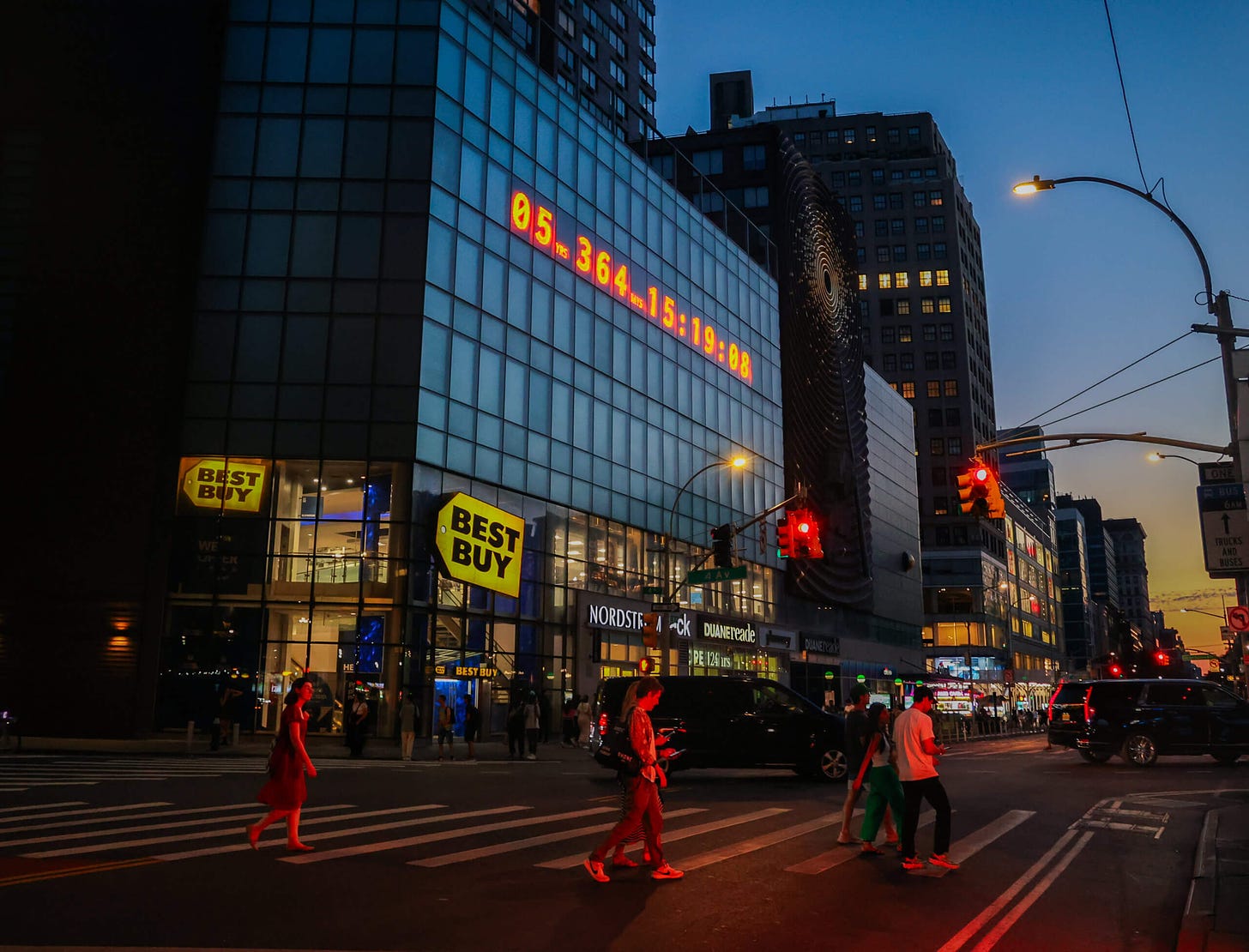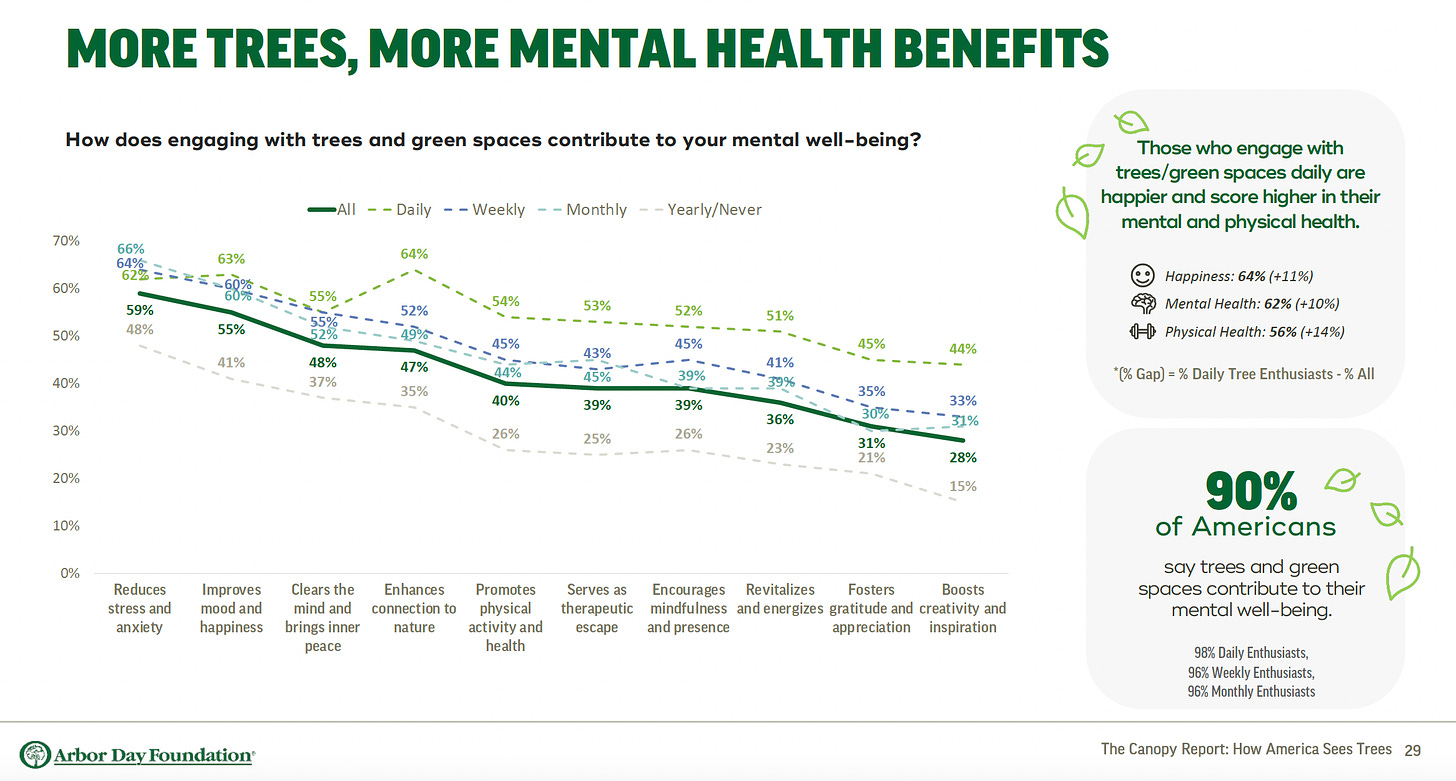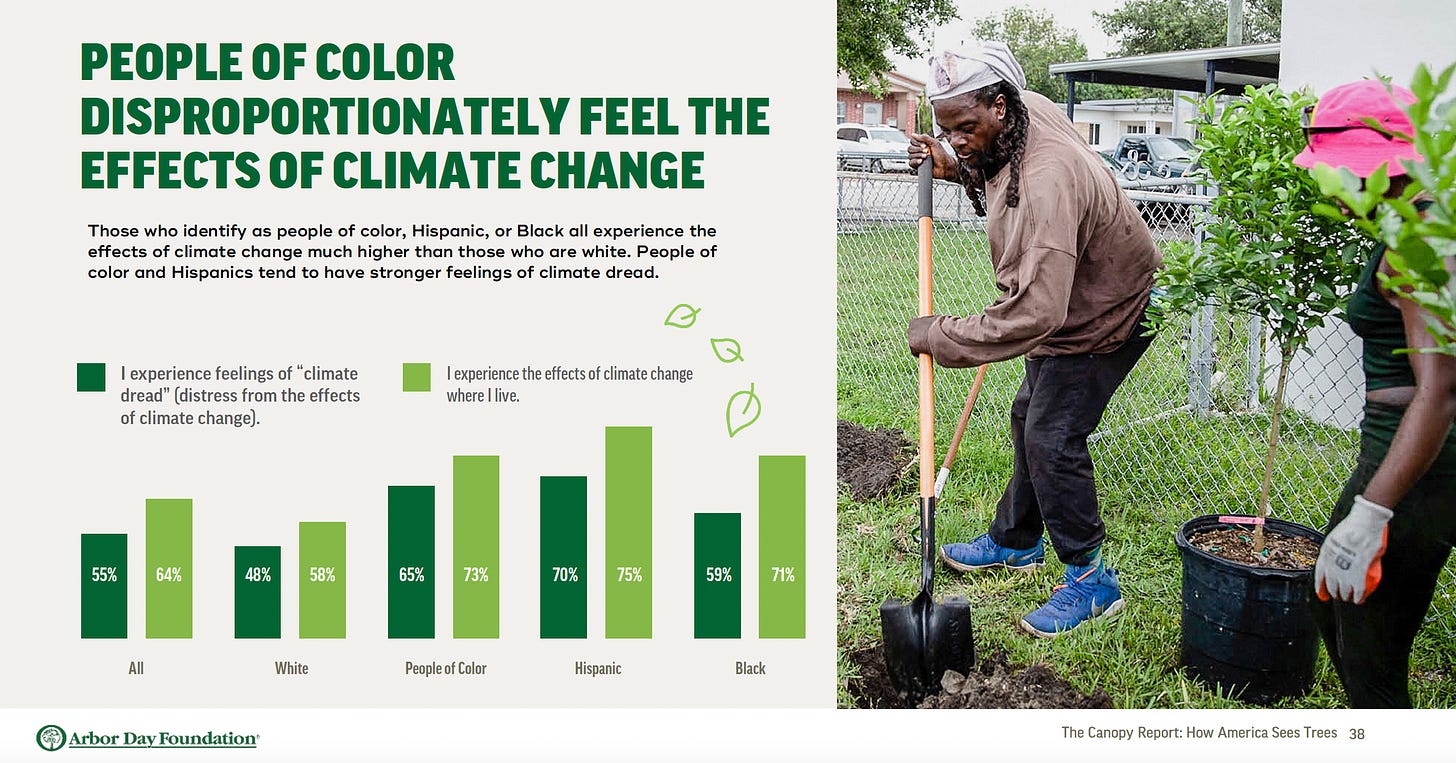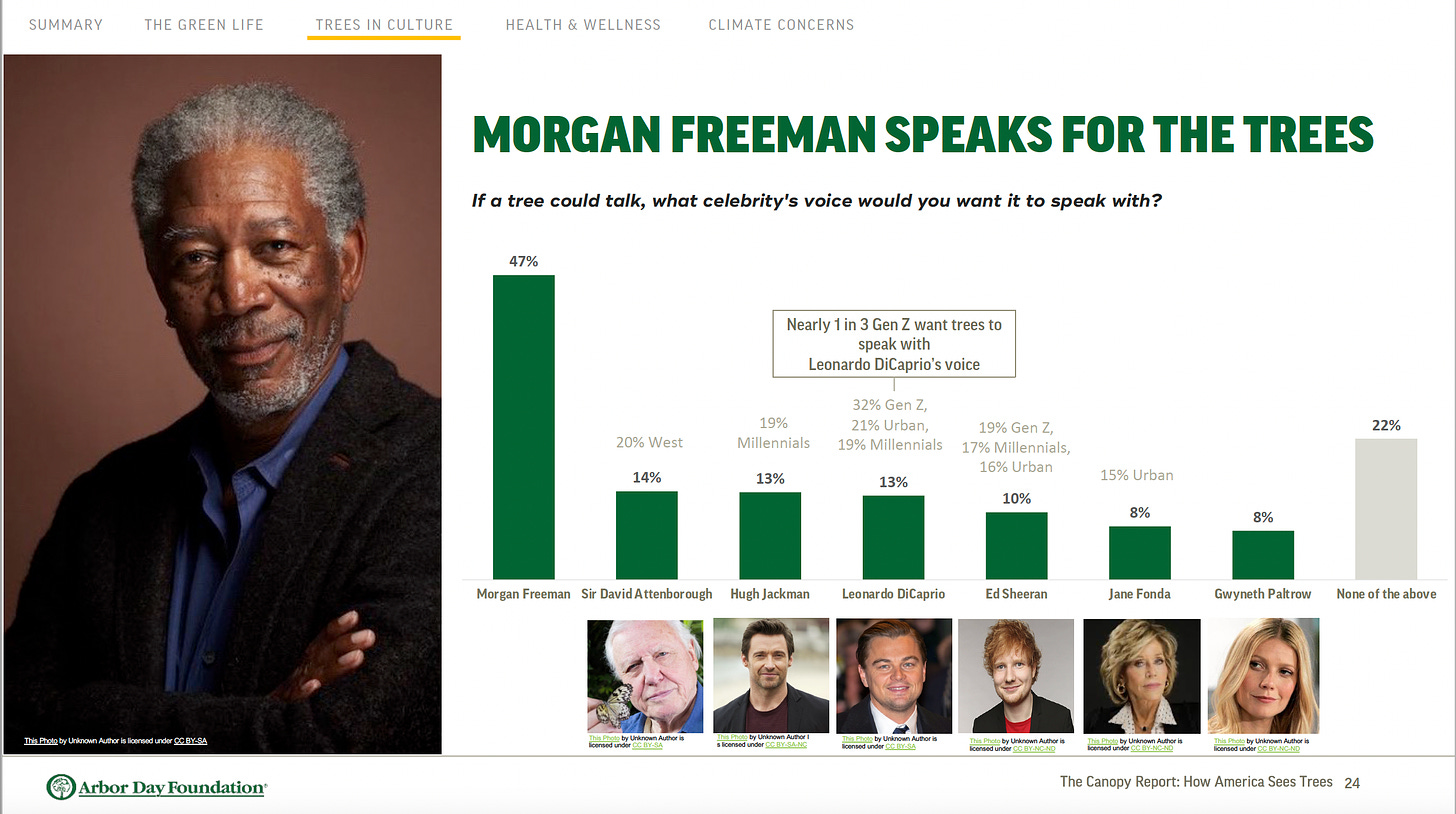If the Trees Could Talk, They’d Sound Like Morgan Freeman
An argument to rewire our climate narratives from fear to profound love affairs

Walking through Union Square in New York, one thing that is hard to unsee is the glaring ‘climate doomsday clock’ that hovers ominously flashing "5 years and 45 days" over people’s heads, a reminder to act now or forever be doomed. The clock implores immediate action, but in reality, it just leaves people with dread.
In a world where the mantra "if it bleeds, it leads" governs media, we find ourselves in a similar narrative for climate, trapped in a paralyzing narrative of climate fear. This fear fires up our parasympathetic nervous system and jolts us into a ‘fight or flight’, hardly conducive to the sustained action required to address the environmental crises.
Alarmingly, we found with the Arbor Day Foundation, that 55% of Americans report experiencing 'climate dread', a figure that soars to 75% among Gen Z. This overwhelming sense of apprehension contributes to a shifting sentiment among Gen Z, now 61% of Gen Z say “I feel like I can’t do much to help the environment.” These insights underscore an urgent need to transform our climate narrative from one of fear to one of a profound love affair with our planet—a narrative filled with optimism, personal connection, hope, and proactive engagement. It's time to reframe our perspective, celebrate and prioritize our emotional bond with nature, and nurture the environments that sustain and inspire us.

#1. Trees: The Unsung Heroes of Modern Medicine
Data from the Arbor Day Foundation 'Canopy Report' reveals a compelling truth: 88% of Americans engage with green spaces, finding joy and health benefits in the presence of trees. Regular interactions with nature correlate with higher mental and physical health scores. In fact, 77% of Americans confess, "Being among trees is my happy place," and a significant 55% have planted a tree at least once in their lives. It's no surprise that doctors all over the world are increasingly prescribing 'green prescriptions'—time spent in nature as a form of therapy.
“In many ways, the Canopy Report is a resounding affirmation of the power of trees and their critical function in our everyday lives,” said Dan Lambe, chief executive of the Arbor Day Foundation. “Americans understand the value trees planted in the right places for the right reasons can have on our own health, the health of our communities, and the role they play as a solution to some of the biggest issues facing the planet today, like climate change.”
#2. A Deep-Seated Desire for More Green Spaces
The call for more trees is loud and clear, with 77% of Americans wishing for more greenery in their neighborhoods. Accessibility remains a concern, as over half need to drive to the nearest natural refuge. The stewardship for local flora is strong, with 63% feeling a profound duty to care for their community's trees and 88% advocating for more trees in their local forest and communities. Overall, 9 in 10 (91%) Americans believe that trees help make neighborhoods more livable.
Furthermore, the research indicates that efforts to improve access and mobilize communities should consider and work to tackle the disproportionate impact of climate change has on communities of color.
#3. Fall In Love With The Voice of Trees → Morgan Freeman
When Americans imagine a talking tree, 46% hear Morgan Freeman, reflecting the deep wisdom and reverence they associate with these natural giants. Personal connections to trees are particularly strong among younger Americans, with 40% of Millennials and 39% of Gen Z having named a tree in their neighborhood, compared to 28% of all Americans
#4. Recognizing Trees as Climate Champions
An overwhelming 90% of Americans acknowledge trees as crucial in the fight against climate change. They view trees not as luxuries but as necessities, with 94% affirming their benefits for the planet. Amidst rising temperatures, research underscores trees' ability to cool urban areas by up to 10 degrees, offering a lifeline in heatwaves that disproportionately affect underserved communities.

#5. Enlist the Youth & Remind Everyone of The Natural ‘Reset’ Button
Despite the rising feelings of helplessness, the desire to partake in a collective environmental effort is especially pronounced among the youth, with over half of young Americans eager to join or support a 'green' movement (56% Millennials, 54% Gen Z). This sentiment is encapsulated by 85% of Americans who find rejuvenation in nature, stating, "Spending time in nature, surrounded by trees, is like a reset button for my mind and soul." This is especially important as we gear up for a divisive election season.

Implications for Marketers
As we strive to reshape our climate discourse, the challenge for marketers is to pivot from a narrative of fear to one of romance and relationship with nature. The data shows that young people, particularly, yearn to wear their environmental commitment "as a badge of honor." They seek to be visible and active participants in a movement that celebrates and nurtures the planet. This is not just about selling a product or an idea; it's about fostering a community that is deeply invested in the well-being of our world. As Jane Goodall eloquently put it at Davos, "It will take hope, inspiration, and action to save the earth." Let us draw inspiration from the steadfast trees around us and rewrite our stories with roots deeply embedded in love and care for our planet.
Shout out to Tim Osiecki, Ester Kwon, and Ethan Hermann for leading this report!
3 Links
How to celebrate Juneteenth Through Food (Bon Appetit)
National Park Too Crowded? Try These Stunning National Forests (Thrillist)
Completely free grocery store set to open in the Bayview (The San Francisco Standard)
Curiosity is contagious; if you like this newsletter, please share it!!
Penned by Libby Rodney and Abbey Lunney, founders of the Thought Leadership Group at The Harris Poll. To learn more about the Thought Leadership Practice, just contact one of us or find out more here.








